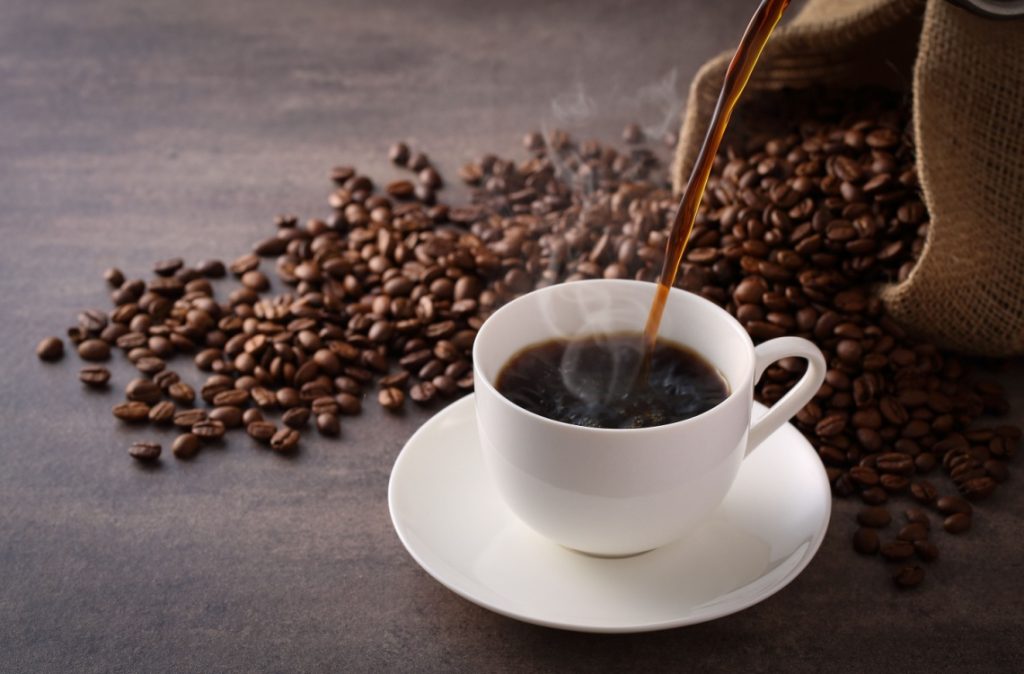Coffee is more than just fuel; it’s culture, entertainment, and in some cases, even medicine.
Once rare, this energiser bean is found in almost anything—its essence distilled into a compound known as caffeine.
While many adults have been consuming coffee and caffeinated products for decades, what about kids?
You may have been told once or twice that you should not give coffee to young children.
But have you ever wondered the reason? Let’s find out together.
How Does Caffeine Work?
Caffeine is prized for its ability to provide energy, but this is not exactly what it does. A good way to explain how caffeine works is that it postpones tiredness.
You create an energy debt when you drink coffee. In some ways, when used correctly it can actually promote healthy, productive sleep.
Caffeine suppresses compounds in the body called adenosines. While adenosines have other functions in the body, its primary importance on this topic is that it makes you sleepy.
Drinking coffee or any caffeinated products like certain sports drinks delays the action of adenosines, resulting in increased wakefulness.
Caffeine also increases blood pressure which is the reason why people feel energised when they consume it.
All the side effects aside, however, caffeine does offer certain health benefits when drunk regularly over the course of one’s lifespan.
It’s been known to keep the brain young, preventing Alzheimer’s, dementia and other age-related cognitive disorders.
The Dangers of Caffeine
Despite all the benefits that caffeine confers, it does not come without its downsides.
It gives you energy, but it also may make you hypervigilant, nervous, and can even cause trembling hands, eye twitching and heart palpitations
As a stimulant, coffee is particularly dangerous if you have any heart conditions.
For those who are prone to insomnia, even the tiniest coffee, even early in the morning can negatively impact your entire sleep cycle.
Caffeine is also terrible for those with anxiety disorders or certain neurodivergent conditions such as ADHD as it may aggravate symptoms.
For all intents and purposes, caffeine is a drug. Specifically, a stimulant, that some might argue is no different from cocaine.
In fact, if you’ve been drinking coffee for any length of time, suddenly going ‘cold turkey’ one day may just make you go through withdrawal symptoms. These can include headaches, sleepiness, insomnia, irritability and many others.
Is Coffee Safe for Kids?
Coffee is a naturally bitter drink, so even if your kids are okay to drink it, they probably wouldn’t. But the same cannot be said for caffeine.
Caffeine, distilled and purified, has virtually no taste or smell. This is what makes it so dangerous.
Sports drinks, which are exceptionally appealing to kids, are often heavily caffeinated.
Your kids may not even realise they’re drinking caffeine until it’s too late. So, it’s important for parents to really monitor the kind of food and drinks they buy outside the home.
Children under 12 should not consume any amount of caffeine. Even then, older kids should not drink a lot of it even after hitting puberty.
It’s been show that caffeine can mess with young adults in many ways; poor sleep, mood swings, and even gastric ulcers.
The normal dose for adults is 100ml cup of coffee, the equivalent of 50mg of caffeine. So, ideally, children should not drink above that amount.
Other sources of caffeine such as certain cakes or desserts like tiramisu, ice-cream and others, are okay as long as they do not eat too much of it.
But even then if you do decide to give your preteen a sip or two of coffee, remember, they may get a bit hyperactive and even have trouble falling asleep.
Caffeine for Kids: Yay or Nay?
Caffeine and coffee are great for many things. They keep you energised, boosts concentration and focus, and can even protect your brain from aging.
But it must be consumed responsibly, especially where kids are concerned. It’s okay to let them have a taste if they ask, but be sure to keep it at a minimum.
Moreover, monitor whatever sports drink they may be into these days. You never know what’s in them, or how much caffeine your kids are consuming.
Remember, it’s always better be safe than sorry.
You’ve got this, parents!
Disclaimer: The information provided in this article is for informational purposes only and should not be considered as medical advice from Mamahood. For any health-related concerns, it is advisable to consult with a qualified healthcare professional or medical practitioner.
For more insightful stories and parenting advice, stay tuned to Mamahood Singapore!
